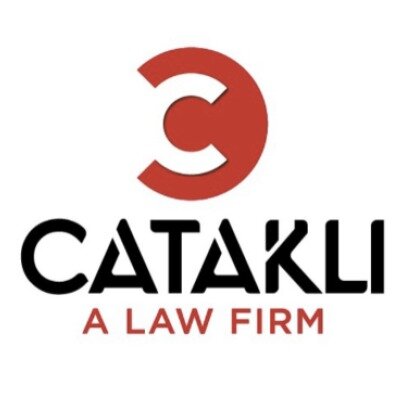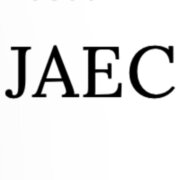Best Communications & Media Law Lawyers in Luxembourg
Share your needs with us, get contacted by law firms.
Free. Takes 2 min.
Or refine your search by selecting a city:
List of the best lawyers in Luxembourg
About Communications & Media Law in Luxembourg
Communications & Media Law in Luxembourg encompasses regulations and legal frameworks that govern the telecommunications, broadcasting, and media sectors. This field of law seeks to balance freedom of expression with issues related to privacy, intellectual property, and defamation. In Luxembourg, a small yet influential European media hub, these laws ensure that media entities operate within defined boundaries while protecting the rights of individuals and maintaining fair competition.
Why You May Need a Lawyer
There are several situations in which individuals or businesses might require legal assistance in the field of Communications & Media Law:
- Disputes related to defamation or libel, especially for journalists and publishers.
- Challenges involving intellectual property rights, including copyright issues for media productions.
- Advice on compliance with telecommunications regulations for service providers.
- Consultation regarding data protection and privacy laws in media operations.
- Legal guidance during mergers or acquisitions involving media companies.
- Negotiation and drafting of contracts for media distribution or licensing.
- Representation in cases of alleged breach of broadcasting laws or regulations.
Local Laws Overview
Luxembourg’s Communications & Media Law is shaped by both national legislation and European Union regulations. Key aspects include:
- Electronic Communications Laws: These laws regulate telecommunications services, ensuring fair competition and protecting consumers’ rights.
- Audio-visual Media Services Directive: As part of the EU framework, it covers content regulation for broadcasting, aiming to provide a level playing field for digital television and radio players.
- Intellectual Property Laws: Important for media law, these laws protect creators' rights over their works, be it written, audio, or visual content.
- Data Protection: Influenced by the EU’s GDPR, these laws are crucial for any media entity handling personal data.
- Defamation Law: Luxembourg's laws expect a fine balance between freedom of speech and protecting individual reputations from harm.
Frequently Asked Questions
What is considered defamation in Luxembourg?
Defamation involves making a false statement about a person that damages their reputation. Luxembourg law protects individuals from defamation in printed, broadcast, or online platforms.
How does GDPR affect media and communications in Luxembourg?
The General Data Protection Regulation (GDPR) imposes stringent requirements on handling personal data, impacting any media and communications businesses that deal with user data.
Are there specific regulations for online content in Luxembourg?
Yes, online content is regulated under both national laws and the EU’s Audiovisual Media Services Directive, ensuring protection against illegal content while safeguarding users' rights.
What is the role of the Luxembourg Independent Audiovisual Authority (ALIA)?
ALIA supervises broadcasting services in Luxembourg, ensuring compliance with national and European regulations particularly in licensing and content standards.
How does Luxembourg regulate media mergers and acquisitions?
Mergers and acquisitions within the media sector are subject to competition laws ensuring no single entity can monopolize the market, a process overseen by regulatory authorities.
What rights do journalists have in Luxembourg?
Journalists in Luxembourg are granted freedom of speech rights, but must balance this with responsibilities, including respecting privacy and avoiding defamation.
Does Luxembourg have net neutrality laws?
As part of the EU framework, Luxembourg adheres to regulations that ensure net neutrality, preventing service providers from discriminating against internet content or services.
What should I do if my content is used without permission?
If you believe your intellectual property rights have been infringed, consulting a lawyer specialized in media law to assess your situation and consider legal action is recommended.
Are there restrictions on advertising content in Luxembourg?
Yes, Luxembourg follows EU advertising standards, prohibiting misleading ads, and setting rules on promotional content aimed at protecting consumers.
Can media companies be held responsible for user-generated content?
Under certain circumstances, media platforms may be liable for user-generated content, especially if they fail to remove illegal content upon notice.
Additional Resources
Consider exploring the following resources for more guidance:
- The Luxembourg Independent Audiovisual Authority (ALIA) - for broadcast supervision issues.
- The Luxembourg Bar Association (Barreau de Luxembourg) - for finding accredited legal practitioners.
- Publications from the European Commission on Media and Audiovisual Services.
- The Intellectual Property Office of Luxembourg - for IP-related concerns.
Next Steps
If you need legal assistance in Communications & Media Law, consider the following steps:
- Identify Your Needs: Clearly define your issue to better communicate with a legal professional.
- Consult a Specialist: Look for a lawyer with expertise in communications and media law in Luxembourg.
- Prepare Documentation: Gather all relevant documents related to your case for review.
- Contact Legal Assistance Organizations: Reach out to legal aid services if you need financial assistance for legal representation.
Lawzana helps you find the best lawyers and law firms in Luxembourg through a curated and pre-screened list of qualified legal professionals. Our platform offers rankings and detailed profiles of attorneys and law firms, allowing you to compare based on practice areas, including Communications & Media Law, experience, and client feedback.
Each profile includes a description of the firm's areas of practice, client reviews, team members and partners, year of establishment, spoken languages, office locations, contact information, social media presence, and any published articles or resources. Most firms on our platform speak English and are experienced in both local and international legal matters.
Get a quote from top-rated law firms in Luxembourg — quickly, securely, and without unnecessary hassle.
Disclaimer:
The information provided on this page is for general informational purposes only and does not constitute legal advice. While we strive to ensure the accuracy and relevance of the content, legal information may change over time, and interpretations of the law can vary. You should always consult with a qualified legal professional for advice specific to your situation.
We disclaim all liability for actions taken or not taken based on the content of this page. If you believe any information is incorrect or outdated, please contact us, and we will review and update it where appropriate.
Browse communications & media law law firms by city in Luxembourg
Refine your search by selecting a city.












